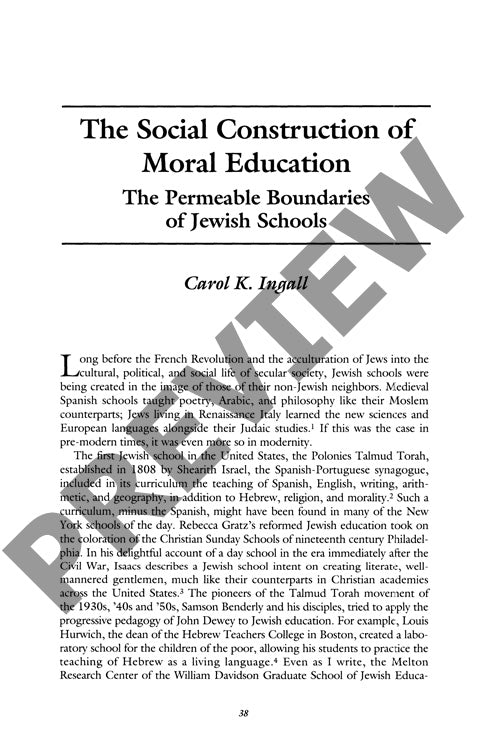The Social Construction of Moral Educati
Couldn't load pickup availability
Over the past 150 years, Jewish schools have navigated a complex dance between maintaining religious distinctiveness and embracing broader American educational innovations in moral instruction. Through historical analysis and curricular examination, this research reveals how Jewish moral education has consistently absorbed and transformed mainstream pedagogical approaches while oscillating between two core orientations: "outside-in" methods emphasizing societal norms and character formation, and "inside-out" approaches prioritizing individual moral reasoning. The evolution spans multiple distinct periods, from the "great tradition" of character education (1820-1935) through progressive education, values clarification (1960s-1970s), Kohlberg's cognitive-developmental model, to today's eclectic methods. Key findings demonstrate Jewish schools' systematic incorporation of character education, values clarification, moral reasoning, multiculturalism, self-esteem building, service learning, and literature-based approaches in parallel with general education trends. Contemporary Jewish moral education has emerged stronger from this historical interchange, moving beyond rigid paradigms toward integrated approaches that harmoniously combine canon, community, and cognition. This historical perspective equips Jewish educators with crucial insights for developing nuanced, multi-valenced moral education strategies that effectively blend appeals to thought, feelings, and action while preserving distinctively Jewish educational objectives.

More Information
-
Physical Description
-
Publication Information
Published 2000
ISBN
-
Publication Credits
Carol Ingall

